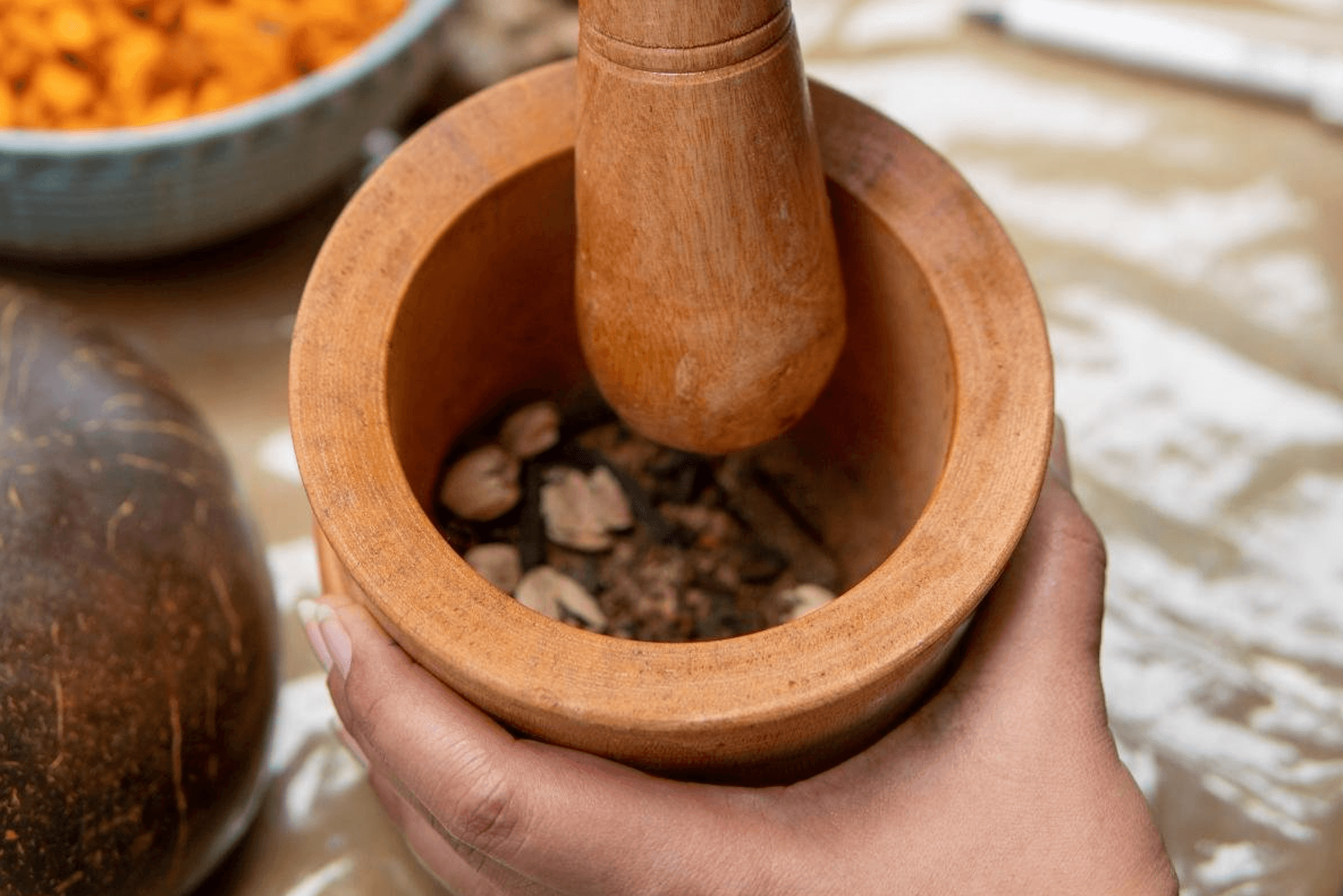Ibogaine for Opiate Addiction


Considering ibogaine for opiate addiction? Discover how this plant-based treatment may help you detox safely, its risks, and why it's gaining attention.
Opioid addiction has devastated countless lives, often leaving individuals and families feeling trapped in a cycle of relapse and despair. While traditional treatments like methadone and Suboxone offer relief for some, they don’t work for everyone.
Recently, interest has grown around ibogaine for opiate addiction—a plant-based compound that some believe can rapidly interrupt withdrawal symptoms and cravings. However, this approach remains controversial and carries serious risks.
At The Forge Recovery Center, we prioritize safe, evidence-based care tailored to your needs. In this article, we will explore whether ibogaine can truly help you detox safely and what alternatives are available.
What Is Ibogaine?

Ibogaine is a naturally occurring psychoactive compound extracted from the root bark of Tabernanthe iboga, a plant native to Central and West Africa. Traditionally, it has been used for centuries in spiritual rituals and initiation ceremonies, particularly among the Bwiti people of Gabon. In these cultural contexts, ibogaine is taken in high doses to induce intense introspective and visionary states—experiences believed to facilitate deep psychological insight and healing.
In recent decades, ibogaine has gained attention outside of its traditional use for its reported ability to interrupt addiction, particularly to opiates. Scientifically, ibogaine acts on multiple neurotransmitter systems in the brain, including serotonin, dopamine, and glutamate. Most notably, it appears to "reset" or rewire the brain’s reward system by disrupting the patterns that drive compulsive drug use.
Researchers believe this neurological reset may help reduce both withdrawal symptoms and long-term cravings. Some describe it as a kind of psychological reboot—offering a window of clarity during which individuals can engage more deeply with the recovery process. However, the exact mechanisms are still not fully understood, and its use remains highly controversial due to safety concerns and its legal status in the U.S.
How Ibogaine Affects Opiate Withdrawal
One of the most compelling reasons people explore ibogaine for opiate addiction is its reported ability to reduce the intensity of withdrawal symptoms significantly. Several observational studies and case reports suggest that a single dose of ibogaine may alleviate the physical and psychological discomfort typically associated with opioid detox—including nausea, muscle aches, insomnia, anxiety, and intense cravings.
The effects of ibogaine usually begin within 1–2 hours of administration. For many, the initial phase includes vivid visions or dream-like introspection, often described as a "waking dream."
While this experience can last up to 24 hours, the most important aspect for those detoxing is what follows: a lingering reduction in withdrawal symptoms and drug cravings that can last days or even weeks. This temporary relief creates a critical window of opportunity for individuals to engage in therapy, build support systems, and begin rebuilding their lives.
Anecdotally, people who have undergone ibogaine treatment often describe it as life-altering. One former opioid user recounted how, after just one treatment, they felt “freed from the constant obsession to use.” Another described ibogaine as “showing them their addiction from the outside,” allowing them to process trauma that had driven their substance use.
However, it’s important to remember that these are personal stories—not guarantees. Responses to ibogaine can vary widely, and the absence of standardized clinical protocols means outcomes aren’t always predictable.
At The Forge Recovery Center, we advocate for approaches rooted in safety, support, and long-term care. While ibogaine may offer short-term relief, sustainable recovery requires a holistic plan that addresses both the physical and emotional aspects of addiction.
Are You Struggling with Mental Health or Addiction?
We Can Help. Call Us Now!
CALL: 877-839-1772
Safety Concerns and Legal Status

While ibogaine shows promise in reducing withdrawal symptoms, it also poses serious safety concerns that cannot be ignored. The most significant risks include cardiac complications—especially arrhythmias that can be fatal if not managed properly.
Ibogaine affects the heart's electrical activity by prolonging the QT interval, which can lead to sudden cardiac arrest. Neurotoxicity has also been observed in high doses or repeated use, although human studies are limited. These dangers underscore the need for careful screening and medical supervision, which are often lacking in many treatment settings.
In the United States, ibogaine is classified as a Schedule I substance, meaning it is considered to have a high potential for abuse and no accepted medical use. As a result, it is illegal to manufacture, distribute, or administer ibogaine for therapeutic purposes in the U.S. This legal status forces individuals seeking ibogaine treatment to travel abroad, often to countries with looser regulations and limited oversight.
Many ibogaine clinics operate without formal medical accreditation, and some lack on-site physicians or emergency care protocols. This has led to tragic outcomes, including deaths from poorly managed dosing or undetected pre-existing health conditions. If you're considering any alternative treatment for addiction, it's critical to prioritize safety.
At The Forge Recovery Center, we understand the desperation that can accompany addiction—but we also know that recovery must be approached with care, evidence, and professional guidance. Choosing a treatment that lacks proper safeguards can put your life at risk.
Comparing Ibogaine to Conventional Treatments
When exploring recovery options, it’s essential to weigh the benefits and risks of all available treatments. While ibogaine for opiate addiction has sparked interest due to its reported ability to interrupt dependency in a single session, it stands in stark contrast to traditional, clinically-approved treatments like methadone and buprenorphine. Here's how they compare.
Traditional Treatments: Methadone and Buprenorphine
Methadone and buprenorphine are both FDA-approved medications used in Medication-Assisted Treatment (MAT) for opioid addiction. These drugs work by binding to the same opioid receptors as heroin or prescription painkillers but in a controlled, safer way that prevents withdrawal and reduces cravings.
Methadone is a full opioid agonist that must be administered daily through licensed clinics. It has been used for decades and is known for its effectiveness in long-term maintenance.
Buprenorphine, often combined with naloxone (as Suboxone), is a partial agonist that can be prescribed in outpatient settings. It has a lower risk of misuse and is accessible through more flexible treatment models.
Both medications are backed by extensive clinical research, have predictable outcomes, and are administered under medical supervision, significantly reducing the risk of overdose and relapse.
Ibogaine: A Radical Alternative
Ibogaine offers a dramatically different approach. It is typically administered in a single high-dose session and is said to "reset" the brain’s addiction pathways. Some users report rapid detoxification and weeks of reduced cravings—results that MAT often takes months to achieve.
However, ibogaine’s effects are not guaranteed. It lacks FDA approval, has limited scientific validation, and poses severe medical risks. Additionally, because it’s illegal in the U.S., patients often travel abroad to undergo treatment—sometimes in unregulated settings without adequate medical oversight.
Weighing the Options
The biggest advantage of ibogaine is its potential for rapid relief, especially for individuals who haven’t responded to other treatments. But that comes with a tradeoff: high medical risk, lack of ongoing support, and legal uncertainty.
Conventional treatments may require more time and consistency, but they’re safer, thoroughly studied, and supported by ongoing care programs—like those offered at The Forge Recovery Center. Our goal is to help you find a recovery plan that balances innovation with proven, life-saving care.
Are You Struggling with Mental Health or Addiction?
We Can Help. Call Us Now!
CALL: 877-839-1772
The Forge Recovery Center’s Approach

At The Forge Recovery Center, we understand that addiction is not just a physical struggle—it’s emotional, psychological, and deeply personal. That’s why we offer more than just a one-size-fits-all solution. Our treatment model is rooted in a holistic philosophy that blends evidence-based practices with compassionate, individualized care. We work closely with each client to create a plan that fits their specific needs, goals, and challenges—because no two recovery journeys are the same.
Holistic, Personalized Care
From day one, our team focuses on uncovering the why behind addiction. Whether trauma, mental health issues, or environmental stressors are at play, we dig deep to address the root causes. Our therapies include Cognitive Behavioral Therapy (CBT), Dialectical Behavior Therapy (DBT), group therapy, family counseling, and mindfulness practices—all tailored to support long-term healing and growth.
Openness to Innovation—With Safety First
While we don’t offer ibogaine for opiate addiction due to its legal status and safety concerns, we remain open to innovation. We follow the research and evaluate emerging treatments carefully, always with patient safety as our top priority. If alternative therapies show legitimate promise and align with best clinical practices, we consider how they might complement our care programs.
Lasting Recovery Through Ongoing Support
Recovery doesn’t end after detox or a 30-day stay. At The Forge Recovery Center, we offer robust aftercare planning that includes alumni programs, peer support, relapse prevention education, and access to sober living resources. We stay connected with our clients for the long haul, helping them rebuild not only their physical health, but also their relationships, careers, and sense of purpose.
Choosing to recover is a courageous step. We're here to walk with you—every step of the way.
Considering Ibogaine for Opiate Detox? Let’s Talk About Safer Paths
Ibogaine may seem like a fast-track out of addiction, but its risks—and legal status—make it a dangerous and uncertain route. At The Forge Recovery Center, we offer safer, evidence-based alternatives that are proven to support long-term recovery. Whether you're exploring treatment options for yourself or someone you love, we're here to guide you with personalized care, professional support, and a clear path forward. You don’t have to do this alone—we’ll help you take your life back, one step at a time.
Are You Struggling with Mental Health or Addiction?
We Can Help. Call Us Now!
CALL: 877-839-1772





